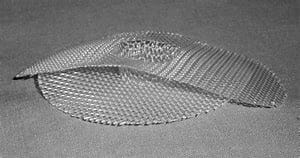
Although roughly half a million people a year undergo hernia repair surgery, there have been a significant number of cases that have resulted in complications in the last several years. A hernia is often repaired using a mesh to support weak muscles that have allowed organs or tissues to protrude. When complications arise from the use of mesh, a patient can experience excruciating pain and infections which, left untreated, can have severe consequences.
One hernia patch, Physiomesh, was manufactured with the purpose of naturally absorbing into the patient’s abdominal wall to prevent the inflammation and adhesions seen in other hernia meshes. It uses plastic fibers between two polymer layers to act as a barrier from internal organs.
Johnson & Johnson’s subsidiary, Ethicon, is responsible for manufacturing Physiomesh hernia patches. In May 2016, Ethicon recalled all of their Physiomesh products because of their high rate of failure. While recalling the product will prevent new patients from developing issues, patients who have already received the implants are still at risk. Ethicon was able to bypass clinical trials for their Physiomesh hernia patch on the grounds that their product was similar to other products already on the market. Many patients who received the defective product have taken legal action through firms such as Whitley Law Firm to pursue damages for medical expenses, pain and suffering, and other expenses.
Physiomesh is not the only offender. There are also cases against Atrium for it’s C-Qur hernia mesh, Covidien, and Bard. While some people may have no complications resulting from their hernia mesh, other are forced to undergo a painful and expensive revision or removal surgery, often leaving the patient in worse shape than before the mesh was ever placed.








